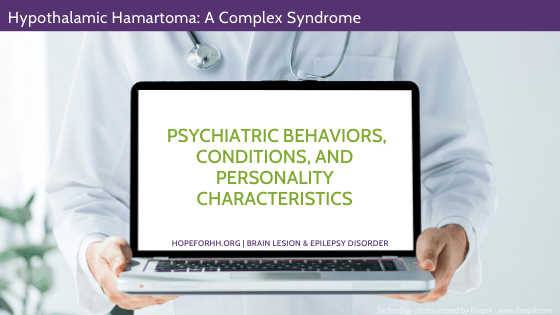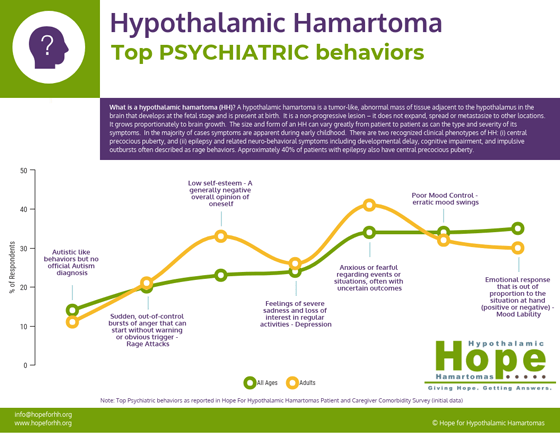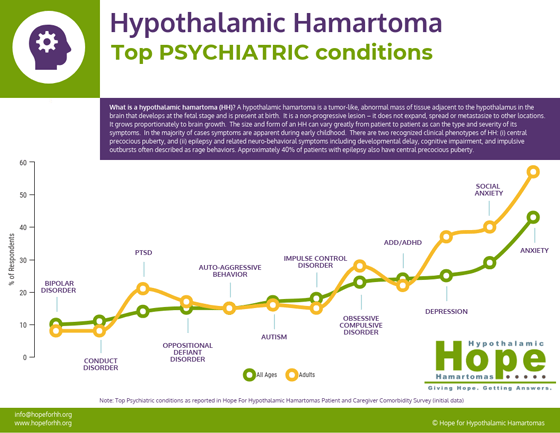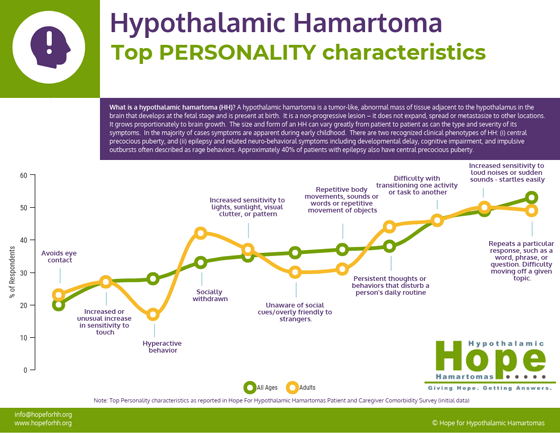
HH Comorbidity Survey – Initial Results
In 2019, Hope for HH launched a comprehensive HH Comorbidity Survey. The goal is to better understand the co-existing or comorbid conditions and symptoms that individuals were experiencing along with HH, but perhaps not receiving an official diagnosis for. In this series of blogs, we plan to share some of the initial findings and perhaps shed some light on just how complex this syndrome truly is!
We are also excited to report the preliminary data was presented at our 4th International HH Research Symposium for medical professionals last Fall in Washington DC. The information was extremely well received and in fact, has motivated medical professionals to share the information with colleagues at their respective specialty conferences this year. We have also had the opportunity to expand the survey in multiple languages! We will continue to collect data through 2020 and if you have not participated in the survey because of language issues, you can access the survey in multiple languages here [English] [Russian] [German] [French]
Today’s blog is about the top psychiatric behaviors and conditions that have been reported, as well as personality characteristics most often observed. Keep in mind – the information included in this blog is from the initial responses we have received from patients and caregivers NOT as reported by the medical community. The whole point of this survey was to be able to collect un-diagnosed or under-diagnosed conditions as they are experienced and reported by individuals and families. Our ultimate goal is to use this information to educate the medical community and improve both the diagnostic and treatment outcomes.
We wanted to share this information with you for several reasons. First – to help you realize that you are not alone when it comes to trying to tell your doctor you believe these symptoms are related to your overall condition. Second, as we collected the data and began to put the charts together, we recognized that there are so many ways that HH impacts not only the individual but also the family unit. We are excited that the medical community has been so receptive to this information and hope to do more surveys like this in the future. Especially ones that are at the clinician and researchers request so they can continue to expand their knowledge and improve their skills. So let’s review the data……..

The first graph represents the top reported psychiatric behaviors. We broke out the adult responses to see if perhaps certain behaviors seemed more prevalent at a specific age or if perhaps certain ones were worse over time. As you can see, the reported experiences track pretty well over the age groups with the exception of the low self-esteem and anxiety. It seems fair to say that as an individual ages and becomes more aware of personal limitations and experiences more uncertainty about the future, this would decrease self-esteem and increase anxiety.

In comparison, we also asked about psychiatric conditions an individual actually had received a diagnosis for from a qualified medical professional. A couple of interesting things to note here. First, the large number of different psychiatric conditions that were actual diagnoses. Often there were multiple diagnoses for one individual. As in the previous chart, we see the larger numbers for anxiety/social anxiety reflected in the responses for adults. Obviously, HH is a syndrome that is not just about seizures. The negative impact on a person’s sense of well-being and ability to cope in the world is greatly impacted!

Finally, we asked about a collection of symptoms that are more general, but nonetheless reflective of how a person interacts with the world. These actions or characteristics are quite common in the world of rare epilepsy yet often written off as an individual’s quirky behavior or just part of their unique personality. It has been our experience through interacting with and supporting so many families – these are anything but “quirky” and should be considered a part of the HH Syndrome.
We hope by sharing this information, the HH community will agree that collecting patient and caregiver perspective on the issues that affect them is not only worthwhile but critical! We could not continue to push clinicians and researchers to seek better and more comprehensive treatments without you. Thank you all for supporting our efforts on your behalf in the many ways you do!
Stay tuned for the next blog in the series on comorbidity survey feedback when we will be talking about the top reported endocrine issues!
Take the HH Comorbidity Survey Today
 |
 |
 |
 |
| French Survey | German Survey | Russian Survey | English Survey |





